Iran's Envoy To IAEA Leaving Post For Non-Diplomatic Assignment

Kazem Gharibabadi, Iran’s envoy to international organizations in Vienna, including the International Atomic Energy Agency, will leave his post on October 15.

Kazem Gharibabadi, Iran’s envoy to international organizations in Vienna, including the International Atomic Energy Agency, will leave his post on October 15.
Fars news agency close to Iran’s Revolutionary Guard reported late Thursday that Gharibabadi has been appointed as the head of Islamic Republic Judiciary’s international affairs department.
The post was held by hardliner functionary Ali Bagheri-Kani until he was appointed as deputy foreign minister by Iran’s new foreign minister Hossein Amir-Abdollahian.
Gharibabadi, who has held the post for the past three years is the son-in-law of former Revolutionary Guard general Mohammad-Bagher Zolghadr, who is currently the secretary of the Islamic Republic’s Expediency Discernment Council, a constitutional body.
Fars reports that Gharibabdi’s name had been mentioned as a possible foreign minister or head of the foreign ministry’s international legal department when President Ebrahim Raisi (Raeesi) was selecting his cabinet in July and August.
He was appointed by former foreign minister Mohammad Javad Zarif.
He had previously served as ambassador to Holland.
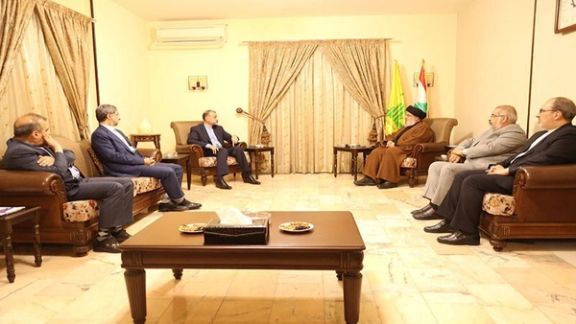
On the second day of his visit to Lebanon, Iran’s foreign minister Hossein Amir-Abdollahian met with the leader of Hezbollah, Hasan Nasrallah on Friday.
Reports by semi-official sources did not reveal many details about the meeting, except that the two sides praised one another and their mutual cooperation.
Amir-Abdollahian pledged full support for Lebanon, which is experiencing an unprecedented economic crisis. Iran recently shipped fuel to alleviate a serious shortage in Lebanon, but beyond that Tehran itself faces an economic crisis mainly because of US sanctions.
Nasrallah thanked the Islamic Republic of Iran for standing next to Lebanon and the “resistance forces”, a reference to Tehran’s allies and proxies in the region.
“Iran has proven that it is an honest and faithful friend, who does not leave its friends alone no matter how difficult circumstances might be,” the Hezbollah leader said.
Hezbollah, with overwhelming influence in Lebanon in the last decade, and traditional Lebanese politicians are blamed for the economic crisis that ensued in 2019, by repeated political deadlocks and factional discord.
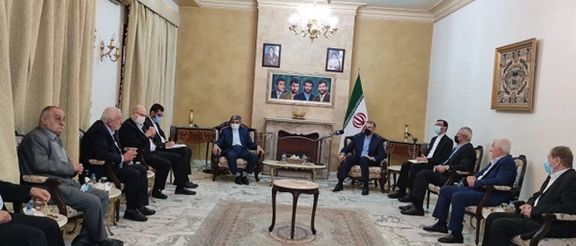
Iran's Foreign Minister in Beirut on Thursday met with officials of Palestinian groups and pledged Tehran's support for resistance against the "Zionist enemy".
Two of the most prominent Palestinians in the meeting were the leader of the Palestinian Islamic Jihad Ziyad al-Nakhalah, and senior Hamas member Osama Hamdan.
In his meeting with representatives of Palestinian groups at the Iranian embassy in Beirut,foreign minister Hossein Amir-Abdollahian said he had stressed in a meeting with the UN Secretary General Antonio Guterres in New York during the annual UN General Assembly summit that the Islamic Republic Supreme Leader Ali Khamenei and the Iranian people will continue to support the "resistance and Palestine until the liberation of all historical Palestinian lands and liberation of Al-Quds (Jerusalem) and Al-Aqsa Mosque."
He also described the “battle of Seif Al-Quds” (Sword of Jerusalem) -- clashes between Palestinians and the Israeli Police in May – as an extremely significant event. "These operations undercut the plan for normalization of [diplomatic] relations [between Arab countries and] the Zionist regime.
Islamic Republic’s support to militant groups in the region goes back to its establishment in 1979, when Iranian revolutionaries were quick to establish ties with various Palestinian and non-Palestinian militants. In the recent decade, with Iran’s full involvement in the Syrian and Yemeni civil wars, Iran’s policy of interference in regional countries has emerged, with Western governments demanding that Tehran change course.
Amir-Abdollahian had also met with leaders of Palestinian groups in Damascus on August 30 during his second regional trip after his appointment as foreign minister. These included Talal Naji, secretary-general of the Popular Front for the Liberation of Palestine, Khalid Abdal Majid, secretary-general of the Palestinian Popular Front, Abu Saeed Al-Maniawi, senior Palestinian Islamic Jihad official, and officials of the Democratic Front for the Liberation of Palestine and Palestinian National Liberation Movement. "If it were not for the support of the Islamic Republic of Iran, the victories of the resistance axis in Lebanon, Syria, Iraq, and Yemen would not have been realized today," Naji told reporters after the meeting.
The Iranian foreign minister on Thursday held a flurry of separate meeting with top Lebanese officials including President Michel Aoun, a key ally of the Iran-backed Lebanese Hezbollah, Parliament Speaker Nabih Berri, the recently appointed Prime Minister Najib Mikati, and Foreign Minister Abdullah Bou Habib. On Thursday he also visited the Supreme Islamic Shia Council of Lebanon where he met with the family of the late Musa al-Sadr, the Iranian-born Lebanese scholar and political leader who founded the Amal Movement in 1974.
In a news conference after his meeting with Lebanese officials Thursday, Amir-Abdollahian said if asked by the Lebanese government, Iran would be willing to participate in the rebuilding of the port of Beirut which was destroyed in a massive explosion in August 2020 as well as two power plants, one in Beirut and another one in south Lebanon within a year and a half.
On Wednesday dozens of Lebanese citizens rallied in Beirut ahead of the Iranian foreign minister's visit to protest what they said is Iran's growing influence in Lebanon.
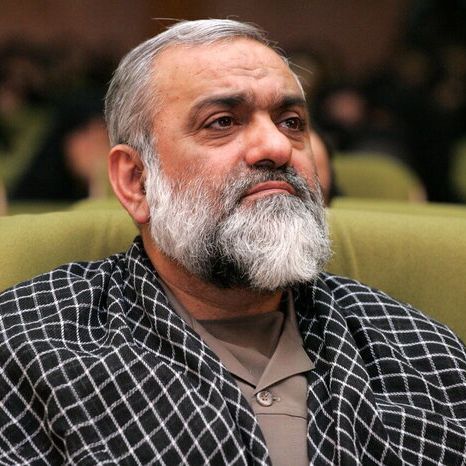
A Zoroastrians lawmaker in a letter has criticized an IRGC commander for disparaging remarks about pre-Islamic dynasties and offered him a brief history lesson.
Mohammad-Reza Naghdi, the coordinating deputy of the Islamic Revolution Guard Corps (IRGC), had called the Achaemenid Dynasty (550-330 BCE) “filthy” in a speech Wednesday, accusing them of massacres and handing Iran “to the Greeks.” The Achaemenids fell to Macedonia’s Alexander the Great in the 4th century BCE.
Esfandiar Ekhtiari, who has since 2008 represented the small community of the ancient Iranian Zoroastrian faith, responded in a letter by extolling the Achaemenid ceremonial capital, which was declared a World Heritage Site in 1979: “What is seen in Persepolis reliefs are all indicative of purity and greatness.”
Naghdi had also attacked the Sassanid dynasty (242-264 CE) for handing Iran to the Mongols.
Ekhtiari pointed out that the Mongols over-ran Iran some centuries after the Sassanids were overthrown by Arabs adhering to the new religion of Islam shortly after the death of the Prophet Muhammed in 632 CE.
“Doubtless, there is no need to refer back to history to see who was ruling in Iran after the Sassanids, which definitely were not the Mongols,” Ekhtiari noted.
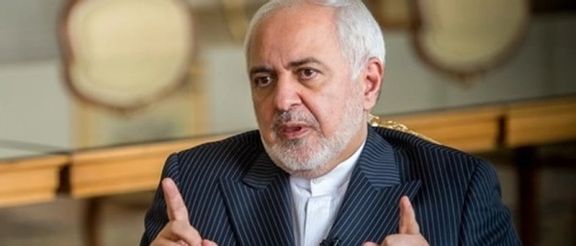
Former Foreign Minister Mohammad Javad Zarif is again under fire after conceding he unintentionally misled parliament over the text of Iran’s 2015 nuclear deal.
Speaking in a Clubhouse session Wednesday evening, Zarif admitted he had wrongly told parliament July 21, 2015 that the word ‘lift’ rather than ‘suspend’ had been consistently used in the wording of the agreement, the JCPOA (Joint Comprehensive Plan of Action) in relation to sanctions.
"The mistake was mine when I said the word 'suspend' does not appear in the JCPOA,” said Zarif, who was deeply involved in two years of negotiations leading to the 2015 agreement, which was abandoned by United States president Donald Trump in 2018 as he introduced ‘maximum pressure’ sanctions on Iran. Zarif was himself sanctioned by the US in 2019.
Following the Clubhouse session, hardliner critics took to social media to call Zarif a traitor. A hashtag demanding his prosecutionhas been set up.
Calls for prosecution
"Zarif's ignorance of the text of the nuclear agreement must be thoroughly investigated and those responsible [for including the word 'suspend'] must be prosecuted," said lawmaker Zohreh Elahian, who sits on parliament's National Security and Foreign Policy Committee, Wednesday.
Hossein Kanani-Moghadam, another hardliner, slammed Zarif for his ignorance: "A nation put its trust in Zarif … to defend the country's interests. How could he agree on a text the content of which, particularly sensitive terminology, he was not aware of?"
"For forty years the Islamic Republic's diplomacy has been in the hands of this group that is dependent [on Western powers],” tweeted Abdolreza Davari, ex-adviser to former principlist president Mahmoud Ahmadinejad. “They have caused nothing but damage…Zarif's friends for forty years stood alongside the enemy".
In Wednesday’s Clubhouse session, Zarif explained to the audience that the negotiation team had been ordered to avoid certain terminology, presumably including the word ‘suspend,’ but had agreed to the word due to a technicality regarding the European Union's position.
According to Zarif, while negotiating the text of one of the JCPOA appendices, the European representative had said that the EU could not 'lift' all its sanctions before UN sanctions were removed and therefore the word 'suspend' was used in some places. Zarif added that the Iranian negotiator had had not informed him of this – and the word appeared in the agreement as signed July 14.
‘This is a lie’
"The matter of suspension had nothing to do with the United States, it was related to the EU sanction … that were supposed to be lifted later," Zarif said in his defense. "But they [his critics] used this, and said Zarif had not read the text of the JCPOA…This is a lie, the Western [negotiators] will definitely tell you if you ask them."
Journalist Amir-Reza Nazari tweeted in defense of Zarifthat the JCPOA text was later scrutinized by parliament, the Supreme National Security Council, and the watchdog Guardian Council. "Why didn't they notice?" he asked.
Mojtaba Davoudi, a reformist activist, asked in a tweet if the use of 'suspend' instead of 'lift' in the JCPOA appendix had caused any real harm.
Opponents of the JCPOA attacked Zarif just as much as President Hassan Rouhani over the agreement, especially when the US imposed stringent sanctions in 2018.
Zarif was in May reprimanded by Supreme Leader Ali Khamenei after leaked audio revealed him criticizing the role of former Qods Force Commander Qasem Soleimani in Iranian diplomacy. Already a principlist hero for organizing resistance to the Islamic State group (Isis-Daesh) in Iraq, Soleimani was killed by a US drone strike in Baghdad in January 2020.
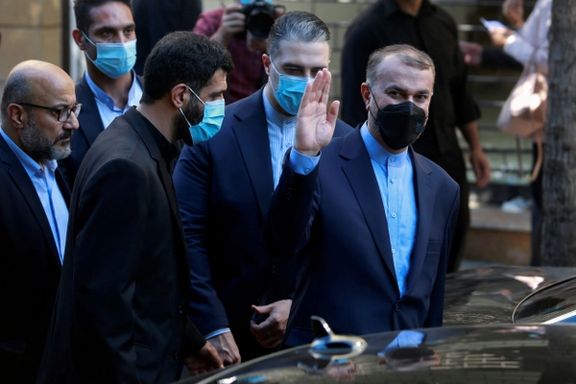
Talks to improve relations between Iran and Saudi Arabia have gone a "good distance", Iran's Foreign Minister told a news conference in Beirut on Thursday.
Hossein Amir-Abdollahian is visiting Lebanon where he promised help to the economically ravaged country.
Iran and Saudi Arabia, the leading Shi'ite and Sunni Muslim powers in the Middle East, have been rivals for years, backing allies fighting proxy wars in Yemen, Syria and elsewhere. They cut diplomatic ties in 2016. Saudi Foreign Minister Prince Faisal bin Farhan confirmed on Sunday that his government had held its first round of direct talks with Iran's new government last month, part of a process begun earlier this year to reduce tensions.
Three rounds of Saudi-Iranian talks were held in Iraq in the months before Iran's new hardline president, Ebrahim Raisi, took office in August.
Prince Faisal said the latest round had taken place on September 21 but did not say where.
The United States and its European and Middle Eastern allies have called on Iran to change its policy of interference in regional countries as part of ongoing nuclear talks with Tehran.